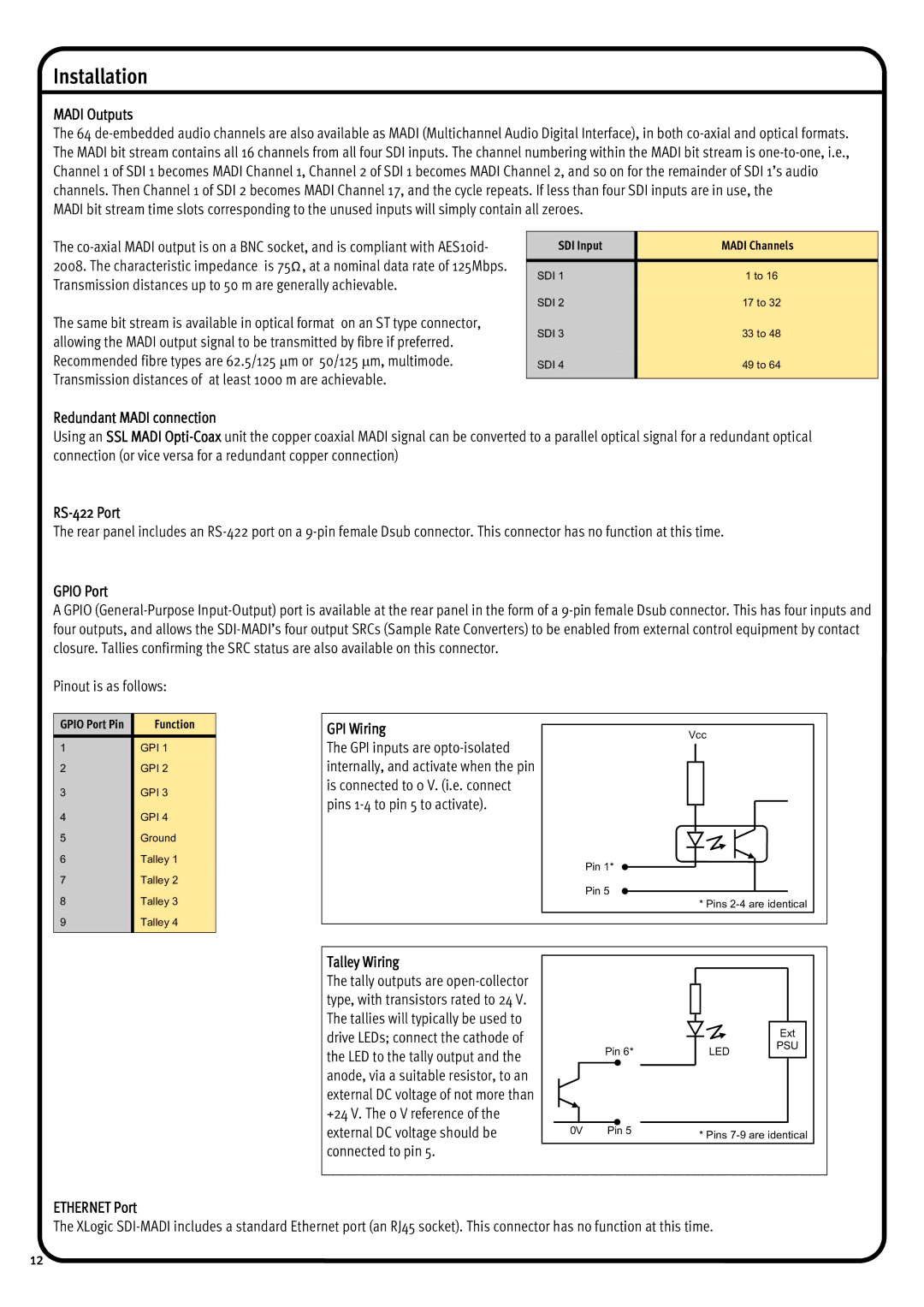1266 specifications
The Solid State Logic 1266 is a premium analog channel strip renowned for its versatility and high-quality audio processing. This channel strip combines sophisticated features, advanced technologies, and the renowned SSL sound, making it a favorite among audio engineers and producers.One of the standout features of the SSL 1266 is its classic SSL EQ, which boasts four bands of equalization. Each band offers selectable frequency ranges, allowing users to perform precise tonal adjustments. The high and low bands can operate as shelving or peak filters, providing flexibility in shaping sound. This powerful EQ section is complemented by a dynamic section, which includes an LED-level meter and a compressor/limiter. The compressor is characterized by its smooth response, allowing for detailed dynamic control over tracks, while the limiter provides an additional safety net for preventing signal clipping.
Another key feature is the inclusion of the iconic SSL mic preamp circuitry. The 1266 is equipped with a transformer-balanced mic pre, designed to deliver warmth and presence to vocals and instruments. It provides ample gain, ensuring the ability to capture signals clearly, even from low-output microphones. The design is meticulous, featuring very low noise and distortion levels, resulting in pure, transparent sound reproduction.
The SSL 1266 also incorporates the brand's proprietary 'SuperAnalog' technology, which enhances the overall sonic performance. This technology ensures low noise and high headroom, allowing the channel strip to handle high-level signals without compromising audio integrity. Additionally, the unit is designed with a robust build quality, featuring a durable chassis and high-grade components that ensure longevity and reliability in studio environments.
Furthermore, the 1266 includes features such as a high-pass filter and an insert point for integrating external processors, providing even more flexibility in sound design. It is also equipped with a line input and a balanced output, further enhancing connectivity options.
The Solid State Logic 1266 channel strip exemplifies the perfect blend of classic analog warmth and modern functionality. It caters to a wide range of applications, from tracking to mixing, making it an indispensable tool for any audio professional seeking to elevate their sound. With its comprehensive features and SSL's legacy of quality, the 1266 is a worthy investment for those aiming for excellence in audio production.

